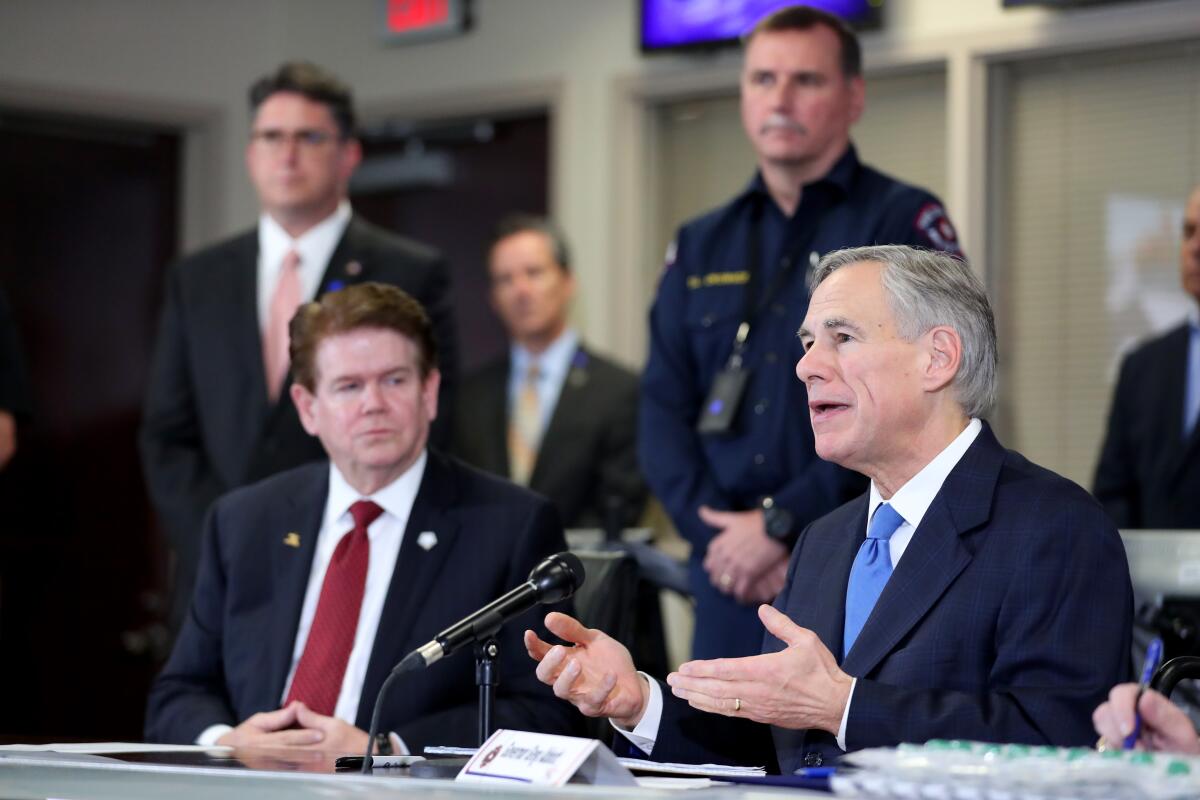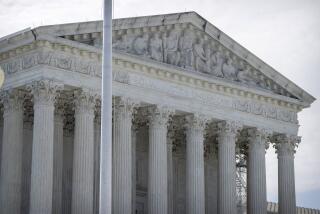Appeals court allows Texas to ban abortions during coronavirus pandemic

- Share via
WASHINGTON — A federal appeals court ruled Tuesday that Texas can enforce its temporary ban on abortion because of the coronavirus pandemic, a ruling that could quickly bring a pivotal abortion question before the Supreme Court.
The U.S. 5th Circuit Court of Appeals said Texas Gov. Greg Abbott’s ban on nonessential healthcare procedures — which Texas specifically wrote to include abortion except when the mother’s life or health is in danger — can remain in place as the legal case proceeds in a lower court, which would take months.
The question of whether a state can ban abortion — albeit on a temporary basis — because of a public health emergency like the pandemic now appears increasingly likely to reach the Supreme Court. It could serve as a test case of sorts for how the court, reshaped with President Trump’s appointment of two conservative justices, feels about abortion rights more generally.
Texas was one of several Republican-led states that included abortion as nonessential healthcare procedures that needed to stop because of the coronavirus. But federal courts blocked the other bans.
Planned Parenthood and other abortion providers say they won’t let Tuesday’s court ruling stand but did not say what they would do next. They will have to decide whether to bring the issue before the Supreme Court or ask the entire 5th Circuit Court to review it.
“This is not the last word. We will take every legal action to fight this abuse of emergency powers, including going to the Supreme Court if necessary,” said Nancy Northup, president of the Center for Reproductive Rights, the legal organization representing abortion providers. “The need for abortion care doesn’t disappear during a pandemic.”
Judge Kyle Duncan, who was appointed by Trump, wrote for the court that individual rights are not eliminated during a public health crisis, but the state is allowed to enact restrictions.
“When faced with a society-threatening epidemic, a state may implement emergency measures that curtail constitutional rights so long as the measures have at least some ‘real or substantial relation’ to the public health crisis and are not ‘beyond all question, a plain, palpable invasion of rights secured by the fundamental law,’” Duncan wrote in his opinion, which was joined by Jennifer Walker Elrod, who was appointed by President George W. Bush.
Duncan relied heavily on a 1905 ruling in which the Supreme Court said states can require people to get vaccinated during a smallpox epidemic or face fines or jail time.
In this case, Texas argued that it has a similar interest in protecting the public health by preserving limited hospital space and medical equipment as the coronavirus spreads. The order prohibiting health procedures merely delays access to abortion, the state argued, and does not prohibit it.
Abbott’s order lasts until April 21 but can be extended. Abortion rights supporters are concerned that the order could last until the pandemic subsides, which some experts say could last far longer than the 40 weeks of a pregnancy.
“Abortion is essential, it’s time-sensitive, and it cannot wait for a pandemic to pass,” said Alexis McGill Johnson, acting president of Planned Parenthood Federation of America. “Planned Parenthood won’t let this injustice stand. Our patients deserve better. We’ll use every tool at our disposal to fight this harmful order and protect our patients’ healthcare.”
Times staff writer David G. Savage contributed to this report.
More to Read
Get the L.A. Times Politics newsletter
Deeply reported insights into legislation, politics and policy from Sacramento, Washington and beyond. In your inbox twice per week.
You may occasionally receive promotional content from the Los Angeles Times.











